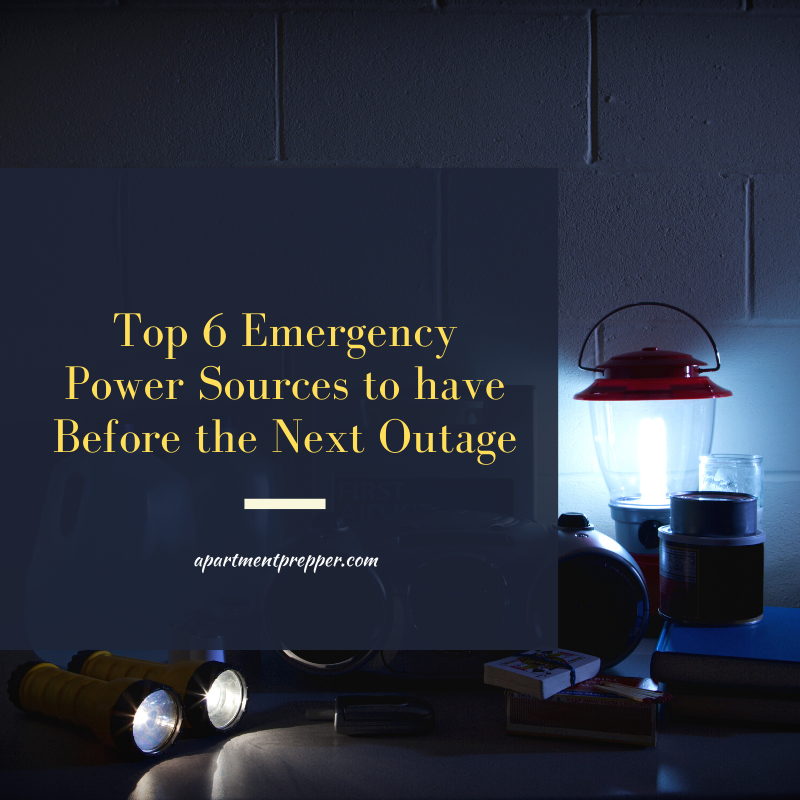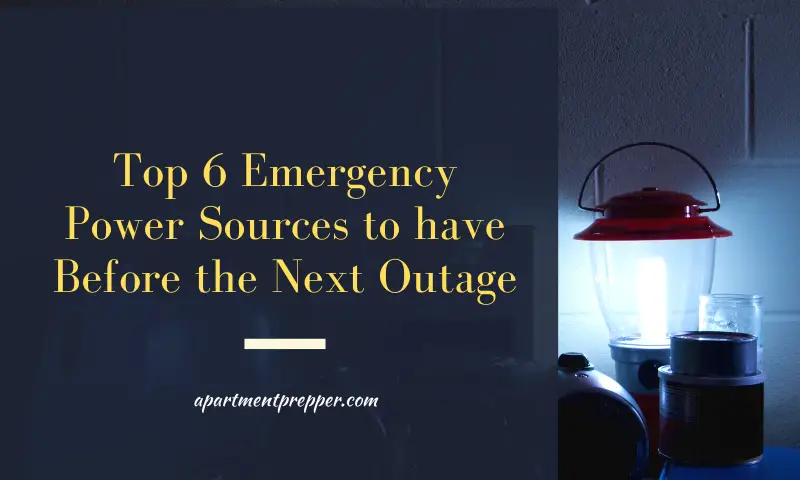Written by Bernie Carr
Power outages often happen during disasters such as hurricanes, earthquakes, snow storms and even heat waves. Just this week, millions of people lost power during a severe winter storm. They were unable to heat their home just as temperatures were plummeting.
Let’s look at short term as well as longer term power sources in the event you lose power.
Batteries
At the most basic, good old batteries are a reliable source of power for small gadgets such as flashlights, lanterns, emergency radios, etc. I have both regular and rechargeable batteries.
Keep a stash of common battery sizes such as AAA, AA, C and D batteries.
I also keep a battery tester – they are inexpensive and will help you check the battery life on regular and rechargeable batteries. I check my battery supply at least once a year.
Propane
Propane is good for powering camp stoves, lanterns and small space heaters.
To be safe, make sure the area is well ventilated when you use these items.
Never run barbecues indoors as this may cause carbon monoxide poisoning and death.
Solar
Solar garden lights can be charged by the sun and provide lighting outdoors, but you can also keep one or two for use indoors. Just make sure you keep them charged.
Solar light kits are also available for lighting small spaces. You must charge them ahead of time, to ensure you have a source of power when you need it.
Portable chargers
As a backup power source for my cell phone, I keep a couple of portable chargers. Keep them fully charged especially if there is a storm, blizzard or hurricane in the forecast.
For an even more versatile choice, choose solar power banks can be charged outdoors, so you can charge them while camping or backpacking.
Gas generator
Gas generators are the usual staple power backup for most homes. I have tested one in the past. Unfortunately, many apartment leases, especially for high rise units prohibit the use of gas generators due to the noise, fumes and fire risk. Never run a gas generator in an enclosed space. Do not use a gas generator if you are not able ground it or vent it properly as generators give off dangerous exhaust fumes while running.
Lithium power station
When I first started writing the blog eleven years ago, lithium battery power stations were very expensive and not widely available. Since they they have gone down in price. They can be recharged using various methods:
- solar panels (usually sold separately)
- wall outlet
- car charger
They are portable enough for camping, and small enough not to take up too much space in your apartment. You can power up small electronics, a small freezer, fridge for a limited time or medical devices such as CPAP machine.
For some, power loss may be a minor inconvenience, but for others, losing power may be life-threatening. Some individuals rely on electricity to power life saving devices such as oxygen concentrators, or need refrigeration to keep medication (such as insulin) cold. To help you calculate your backup power needs, track your usage with a kill a watt device. Your usage will determine whether you can simply stock up on batteries, or invest in a more robust power source.
We are an affiliate of Amazon.com, which means we received a small commission if you click through one of our Amazon links when you shop, at totally no cost to you. This helps keep the lights on at the blog. Thanks!
Bernie Carr is the founder of Apartment Prepper. She has written several books including the best-selling Prepper’s Pocket Guide, Jake and Miller’s Big Adventure, The Penny-Pinching Prepper and How to Prepare for Most Emergencies on a $50 a Month Budget. Her work appears in sites such as the Allstate Blog and Clark.com, as well as print magazines such as Backwoods Survival Guide and Prepper Survival Guide. She has been featured in national publications such as Fox Business and Popular Mechanics. Learn more about Bernie here.



2 comments